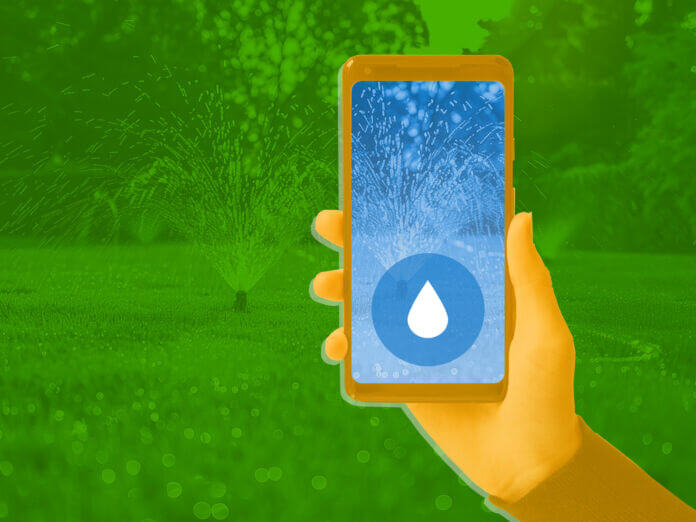
Justin Nichols – July 11, 2024
Collected at: https://www.iotforall.com/smart-irrigation-revolutionizing-water-usage-in-urban-landscapes
In today’s world, where sustainability is not just a trend but a necessity, urban landscapes are crucial in creating healthier, greener cities. From expansive parks and meticulously maintained gardens to the perfectly manicured greens of golf courses, maintaining these urban oases requires a significant amount of water.
Traditional irrigation methods, however, are often inefficient, leading to waste and increased costs. Enter smart irrigation systems powered by the Internet of Things (IoT), which promise to modernize water management in urban landscapes, including the increasingly popular green roofs.
The Need for Smart Irrigation
Water conservation is paramount. Urban landscaping consumes vast quantities of water, often exacerbated by outdated irrigation systems that lack precision. Inefficient water usage also impacts municipal budgets and the environment. Smart irrigation systems address these challenges head-on by utilizing IoT technology to optimize water use.
Components of Smart Irrigation Systems
Soil moisture sensors are the backbone of smart irrigation systems. Strategically placed in the ground or on rooftops for green roofs, these sensors continuously monitor the water content in the soil.
They provide real-time data to the control system, ensuring that plants receive just the right amount of water—no more, no less. This precision is a key feature of smart irrigation systems, contributing to their efficiency and water conservation.
Weather stations are instrumental in preventing unnecessary watering. They ensure water is used efficiently by integrating real-time weather data, such as rainfall and humidity, into the irrigation schedule.
This feature prevents watering during rain showers and adjusts the schedule based on upcoming weather conditions. Control systems, the brains of the operation, automate the entire process, allowing for manual adjustments when necessary.
Connectivity through IoT networks ensures that all components communicate seamlessly, transmitting data to cloud storage for analysis and optimization.
Applications in Urban Landscapes
The benefits of smart irrigation are being realized across various urban settings. Parks, with their vast green expanses, have seen significant improvements in water management.
By employing smart irrigation, these public spaces not only conserve water but also maintain lush, healthy greenery, enhancing the quality of life for city dwellers.
Gardens, both botanical and community, are also reaping the rewards. Precise watering schedules tailored to different plant species promote healthier growth and reduce water waste.
Golf courses, which have unique irrigation needs, benefit from the ability to manage water usage more efficiently, ensuring that greens remain pristine without the excess cost and waste associated with traditional methods.
Green roofs, an innovative solution to urban heat islands and stormwater management, also benefit immensely from smart irrigation systems. These vegetative layers atop buildings require careful water management to thrive without overburdening the structure.
Smart irrigation ensures optimal moisture levels, promoting healthy plant growth and maximizing the environmental benefits of green roofs.
Challenges and Solutions
Despite the clear advantages, adopting smart irrigation systems is not without challenges. Technological issues such as sensor accuracy and connectivity can pose problems, but ongoing advancements continuously improve reliability and performance.
Economically, the initial investment in smart irrigation technology can be a hurdle. However, the long-term savings in water costs and maintenance make it a worthwhile investment. Additionally, many municipalities and organizations offer incentives to encourage the adoption of water-saving technologies.
Regulatory and policy challenges also exist, as water usage regulations vary widely. Policymakers can play a pivotal role by creating frameworks that support and incentivize smart irrigation systems, promoting wider adoption and greater sustainability.
The Future of Smart Irrigation
The future of smart irrigation is bright, with continuous innovations on the horizon. Emerging technologies promise even greater efficiency and integration with broader smart city initiatives.
As public awareness grows and more stakeholders recognize the benefits, the adoption of smart irrigation systems is set to increase, transforming urban landscapes into models of sustainability and efficiency.
Smart irrigation systems represent a significant improvement in the management of urban landscapes. By leveraging IoT technology, these systems ensure that every drop of water is used efficiently, maintaining green spaces sustainably and cost-effectively.
As we look to the future, the adoption of smart irrigation will be crucial in our efforts to build greener, more resilient cities, from parks and gardens to golf courses and green roofs. The transformation is not just about saving water—it’s about creating urban environments that thrive and inspire.

Leave a Reply